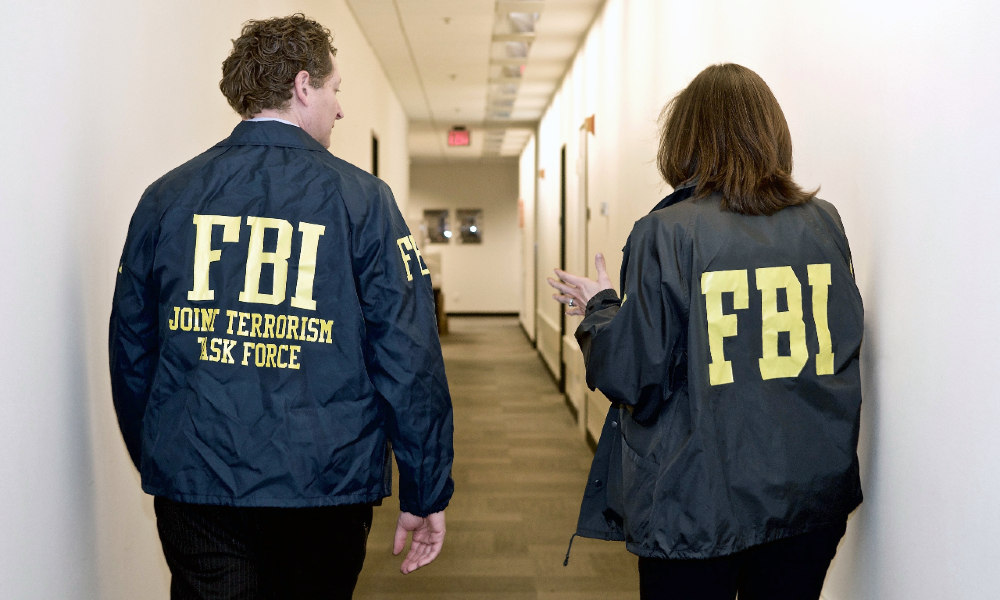Engaging NSA: Exploring the Disparity Between Public Perception and Self Perception
Over the past week, we have both spent a fair bit of time at NSA and engaging with the agency.
On Monday, Bobby helped arrange for a small group of scholars to spend the day at the agency, meeting with senior officials and talking about the current controversies. The group was convened by the Robert S. Strauss Center for International Security and Law of the University of Texas, the William P.
Published by The Lawfare Institute
in Cooperation With

Over the past week, we have both spent a fair bit of time at NSA and engaging with the agency.
On Monday, Bobby helped arrange for a small group of scholars to spend the day at the agency, meeting with senior officials and talking about the current controversies. The group was convened by the Robert S. Strauss Center for International Security and Law of the University of Texas, the William P. Clements Jr. Center for History, Strategy, and Statecraft (also of the University of Texas), and the International Security Program at Notre Dame. It was organized by Bobby (on behalf of the Strauss Center), Will Inboden (on behalf of the Clements Center), and Mike Desch (on behalf of the International Security Program), and it also included Amy Zegart of Stanford, Kori Schake of the Hoover Institution, Dick Betts of Columbia, Tom Mahnken of the Naval War College, both Josh Rovner and Jeffrey Engel of SMU, and Ben. Collectively, the group brought to bear a broad range of experience and views on NSA-related questions, but to be frank, no one was quite sure what to expect from the visit. We knew we’d be given the chance to speak with an array of officials, but whether the exchanges would be truly substantive, well, that remained to be determined.
In the event, it was a rather remarkable day. One by one, a series of senior officials came in to the conference room not simply to offer their perspectives, but to engage in serious conversation with us regarding a wide range of issues (and not just the issues exposed over the past few months). At times, the tenor and substance of the discussion was somewhat dry, in the nature of an overview of various institutional structures and basic features of NSA life. At other times, however, the exchanges were pointed, lively, and rich. Chatham House rules preclude us from being too specific about the particulars of who said what, and we do not purport to speak for the other scholars in attendance. That said, we (Bobby and Ben, that is) do feel free to share a few of our own reactions.
Our major takeaway concerns the dramatic disparity that separates the perception on the outside of what this agency does and NSA's self-perception. To hear NSA folks talk about their compliance regime, for example, is to hear about an entirely different animal than the situation depicted in many new stories. To hear NSA folks discuss the relationship between encryption, cyber-security, and cyber offense is a different animal than to read news stories about how NSA breaks encryption. And so forth. These conversations were all unclassified, but they vividly described a wide gap in understanding between NSA and the press, members of Congress, and the public regarding what the agency does and doesn't do, how accountable and regulated it is, to what extent it complies with the law and how, and what the relevant law is.
That gap is unnecessary, or at least it need not be so wide. Over the coming weeks, we will be looking for ways to close it, or at least to more fully expose this disparity between the self-perception and public perception of the agency. However one feels about the underlying issues, after all, it is surely a good thing for everyone involved to better understand one another's perception of them. Toward that end, therefore, we will be exploring options for putting into the public record a rich account of how the agency perceives its own project and the policies, practices, and institutional structures through which it operates.
Stay tuned.
Benjamin Wittes is editor in chief of Lawfare and a Senior Fellow in Governance Studies at the Brookings Institution. He is the author of several books.
Robert (Bobby) Chesney is the Dean of the University of Texas School of Law, where he also holds the James A. Baker III Chair in the Rule of Law and World Affairs at UT. He is known internationally for his scholarship relating both to cybersecurity and national security. He is a co-founder of Lawfare, the nation’s leading online source for analysis of national security legal issues, and he co-hosts the popular show The National Security Law Podcast.






